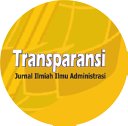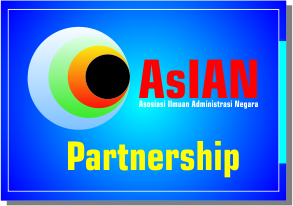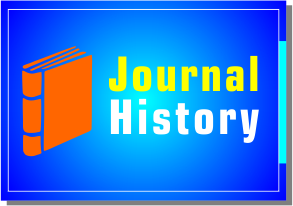Analisis Efektivitas Penerapan Program Kebijakan Pemutihan Pajak Kendaraan Bermotor dalam Upaya Meningkatkan Pendapatan Pajak Daerah di SAMSAT Kabupaten Tegal
DOI:
https://doi.org/10.31334/transparansi.v6i2.3586Keywords:
Policy Effectiveness, Motor Vehicle Tax Amnesty, Motor Vehicle Tax, Local Tax Revenue,Abstract
One such policy is to increase the number of taxpayers who own motor vehicles but have not been paying taxes. To address this issue, local governments offer an option to waive administrative sanctions for motor vehicle taxes. The purpose of this research is to analyze the effectiveness of the implementation of the motor vehicle tax amnesty policy, as well as to identify obstacles and efforts to overcome these obstacles in the program’s execution. This study adopts a qualitative approach with descriptive analysis methods with secondary data as its basis. The research results indicate that the effectiveness of the motor vehicle tax amnesty policy is relatively successful, evident in the increased achievement of motor vehicle tax revenue targets at the Tegal District SAMSAT in the years 2021- 2022. Despite the increase in revenue, there was a decline in realization in 2022 compared to 2021. However, the Tegal District SAMSAT has made efforts to enhance the collection of motor vehicle tax revenue.References
Agustinova, D. E. (2015). Memahami Metode Penelitian Kualitatif; Teori & Praktik (2nd ed.).
Yogyakarta: Calpulis.
Anggoro, D. D. (2017). Pajak Daerah dan Retribusi Daerah (1st ed.). Malang: UB Press. Damas Dwi Anggoro, S. M. (2017). Pajak Daerah dan Retribusi Daerah. Malang: UB Press.
Drs. Chairil Anwar Pohan, M. M. (2014). Pembahasan Komprehensif Pengantar Perpajakan Teori dan Konsep Hukum Pajak. Bogor: Mitra Wacana Media.
Halim, A., Bawono, I. R., & Dara, A. (2020). Perpajakan: Konsep, Aplikasi, Contoh, dan Studi Kasus (3rd ed.). Jakarta Selatan: Salemba Empat.
Harjo, D. (2019). Perpajakan Indonesia (2nd ed.). Bogor: Mitra Wacana Media.
hipajak. (2022). Pengertian dan Tujuan Pajak STNK Kendaraan . Jakarta Selatan: PT Investa Hipa Teknologi.
Husaini, A. (2020). Analisis Efektivitas Kebijakan Pemutihan Bea Balik Nama Kendaraan Bermotor di Kota Malang. Profit, 14, 48.
Indriastuti, M., Apriyanti, H. W., & Muthoharoh. (2020). Perpajakan (Teori dan Kebijakan) (1st ed.). Yogyakarta: CV Budi Utama.
Kamaroellah, R. (2021). Pajak dan Retribusi Daerah. Surabaya: CV. Jakad Media Publishing. Latunreng, W. (2019). Perilaku Organisasi (2nd ed.). Jakarta: LPPM Institut STIAMI.
M. Ravitch, S., & Carl, N. M. (2021). Qualitative Research Bridging the Conceptual, Theoritical, and Methodological (2nd ed.). London: SAGE.
Maksudi, B. I. (2017). Dasar-Dasar Administrasi Publik. Depok: PT Rajagrafindo Persada. Maksudi, B. I. (2017). Dasar-Dasar Administrasi Publik (1st ed.). Depok: Rajagrafindo Persada. Minollah. (2020). Pajak Daerah (Kajian Teoritik dan Konseptual). NTB: Pustaka Bangsa.
Mulyadi, M. (2020). Metode Penelitian Praltis : Kuantitatif dan Kualitatif. Jakarta: Publica Institute.
Mulyono. (2009, May 28). Model Implementasi Kebijakan George Edwards III. Free Writing in the Wall.
Nugroho, R. (2017). Public Policy : Dinamika Kebijakan Publik-Analisis.
Pohan, C. A. (2017). Manajemen Perpajakan (5th ed.). Jakarta: PT Gramedia Pustaka Utama. Raja Panjaitan, D. T., & Pardede, P. D. (2021). Administrasi Publik. Purbalingga: Eureka Media
Aksara.
Salim, A., & Haeruddin. (2019). Dasar-Dasar Perpajakan (Berdasarkan UU & Peraturan Perpajakan Indonesia). Sulawesi Setengah: LPP-Mitra Edukasi.
Sampoerna University. (2022). Teknik Purposive Sampling: Definisi, Tujuan, dan Syarat.
Sampoerna University.
Sugiyono. (2020). Metode Penelitian Kualitatif (3rd ed.). Bandung: Alfabeta. Sugiyono. (2022). Metode Penelitian dan Pengembangan (5th ed.). Bandung: Alfabeta.
Wahyuni, S. (2019). Qualitative Research Method: Theory and Practice (3rd ed.). Jakarta Selatan: Salemba Empat.
Downloads
Published
Issue
Section
License

This work is licensed under a Creative Commons Attribution-ShareAlike 4.0 International License
Please find the rights and licenses in Transparansi : Jurnal Ilmiah Ilmu Administrasi By submitting the article/manuscript of the article, the author(s) agree with this policy. No specific document sign-off is required.
- License
The commercial use of the article will be governed by the Creative Commons Attribution license as currently displayed on Creative Commons Attribution-ShareAlike 4.0 International License.
2. Author(s)' Warranties
The author warrants that the article is original, written by stated author(s), has not been published before, contains no unlawful statements, does not infringe the rights of others, is subject to copyright that is vested exclusively in the author and free of any third party rights, and that any necessary written permissions to quote from other sources have been obtained by the author(s).
3. User Rights
Transparansi : Jurnal Ilmiah Ilmu Administrasi spirit is to disseminate articles published are as free as possible. Under the Creative Commons license, Transparansi : Jurnal Ilmiah Ilmu Administrasi permits users to copy, distribute, display, and perform the work for non-commercial purposes only. Users will also need to attribute authors and Transparansi : Jurnal Ilmiah Ilmu Administrasi on distributing works in the journal and other media of publications.
4. Co-Authorship
If the article was jointly prepared by more than one author, any authors submitting the manuscript warrants that he/she has been authorized by all co-authors to be agreed on this copyright and license notice (agreement) on their behalf, and agrees to inform his/her co-authors of the terms of this policy. Transparansi : Jurnal Ilmiah Ilmu Administrasi will not be held liable for anything that may arise due to the author(s) internal dispute. Transparansi : Jurnal Ilmiah Ilmu Administrasi will only communicate with the corresponding author.
5. Miscellaneous
Transparansi : Jurnal Ilmiah Ilmu Administrasi will publish the article (or have it published) in the journal if the article’s editorial process is successfully completed. Transparansi : Jurnal Ilmiah Ilmu Administrasi editors may modify the article to a style of punctuation, spelling, capitalization, referencing and usage that deems appropriate. The author acknowledges that the article may be published so that it will be publicly accessible and such access will be free of charge for the readers as mentioned in point 3.
Every accepted manuscript should be accompanied by "Copyright Transfer Agreement"prior to the article publication.











